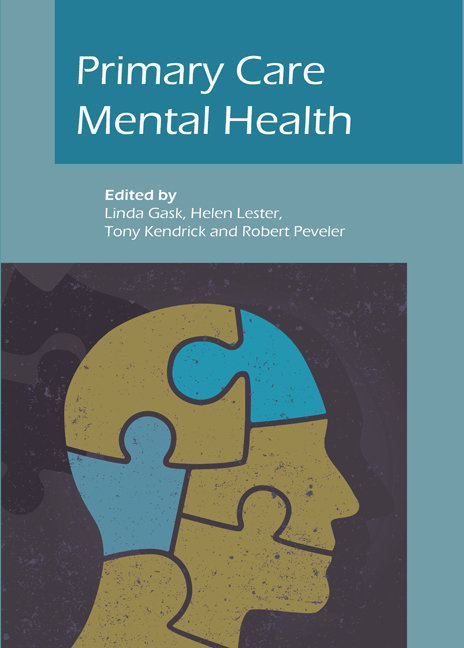Book contents
- Frontmatter
- Contents
- List of figures, tables and boxes
- List of contributors
- Preface
- Part I Conceptual basis and overarching themes
- 1 What is primary care mental health?
- 2 Mental health and primary healthcare: an international policy perspective
- 3 The epidemiology of mental illness
- 4 A sociological view of mental health and illness
- 5 The service user perspective
- 6 Low- and middle-income countries
- 7 Diagnosis and classification of mental illness: a view from primary care
- Part II Clinical issues
- Part III Policy and practice
- Part IV Reflective practice
- Epilogue
3 - The epidemiology of mental illness
from Part I - Conceptual basis and overarching themes
- Frontmatter
- Contents
- List of figures, tables and boxes
- List of contributors
- Preface
- Part I Conceptual basis and overarching themes
- 1 What is primary care mental health?
- 2 Mental health and primary healthcare: an international policy perspective
- 3 The epidemiology of mental illness
- 4 A sociological view of mental health and illness
- 5 The service user perspective
- 6 Low- and middle-income countries
- 7 Diagnosis and classification of mental illness: a view from primary care
- Part II Clinical issues
- Part III Policy and practice
- Part IV Reflective practice
- Epilogue
Summary
What is epidemiology?
Epidemiology is the study of factors affecting the health and illness of populations, of how often diseases occur in different groups of people and why. The uses of epidemiology (Morris, 1957) are therefore quite varied. They range from studies about what might cause a disease to a purely descriptive account of how many people have or develop a condition. From the perspective of primary care, both these aspects could be important. Primary care, at least as provided in countries such as the UK, where almost everyone is registered with a general practitioner (GP), is population-based medicine. Primary care physicians often provide advice about prevention as well as treating people with existing conditions. They are also faced with the whole range of morbidity, and so data from household samples are often of value in helping to understand the population served by primary care. The gradations between normality and abnormality or between health and disease are as obvious to the primary care physician as to the epidemiologist. In this chapter, we restrict our discussion to descriptive aspects of epidemiology and their relevance to mental health in primary care.
‘Mental illness’ and ‘psychiatric disorder’ are terms that refer collectively to all of the diagnosable mental disorders (see Chapter 7 for further discussion). ‘Mental disorders’ are characterised by abnormalities in cognition, emotion or mood or by behavioural impairment in social interactions. A substantial range of conditions is therefore covered by this term, reflected in Chapter 5 of ICD–10 (World Health Organization, 1992). The commonest psychiatric disorders are depression and anxiety and, as a result, much of the research in primary care has focused on them. However, it is important to remember that other conditions, such as schizophrenia, bipolar affective disorder and dementia, also present to primary care physicians and require treatment in primary care. The preoccupation with depression and anxiety reflects the fact that most people with those conditions are treated within primary care, whereas secondary care, at least in the UK, tends to take the lead for psychotic conditions such as schizophrenia and for dementia.
In describing the epidemiology of mental illness in primary care, we have to consider the different organisational and reimbursement arrangements that occur around the world (see Chapter 1).
- Type
- Chapter
- Information
- Primary Care Mental Health , pp. 28 - 39Publisher: Royal College of PsychiatristsFirst published in: 2017



